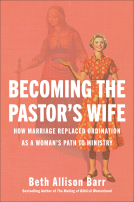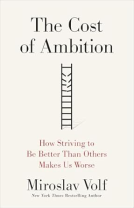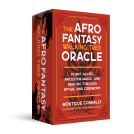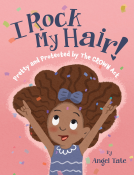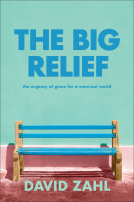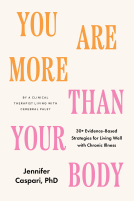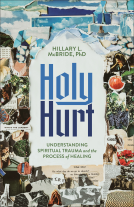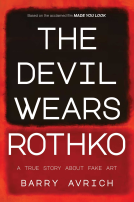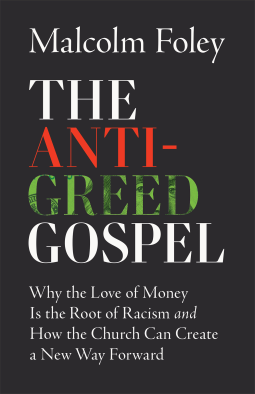
The Anti-Greed Gospel
Why the Love of Money Is the Root of Racism and How the Church Can Create a New Way Forward
by Malcolm Foley
This title was previously available on NetGalley and is now archived.
Send NetGalley books directly to your Kindle or Kindle app
1
To read on a Kindle or Kindle app, please add kindle@netgalley.com as an approved email address to receive files in your Amazon account. Click here for step-by-step instructions.
2
Also find your Kindle email address within your Amazon account, and enter it here.
Pub Date 11 Feb 2025 | Archive Date 28 Feb 2025
Baker Academic & Brazos Press | Brazos Press
Talking about this book? Use #TheAntiGreedGospel #NetGalley. More hashtag tips!
Description
Racism is not about hate and ignorance. It's about greed. And it always has been.
Black Christian historian Malcolm Foley explores this idea in The Anti-Greed Gospel, showing how the desire for power and money--what some call "racial capitalism"--causes violence and exploitation.
Foley reviews the history of racial violence in the United States and connects the killings of modern-day Black Americans to the history of lynching in America. He helps the contemporary church wrestle with the questions racial violence brings up: How can we become communities that show generosity and resist greed? What is the next step in the journey for racial justice?
Readers will walk away with a better understanding of how they can resist greed that exploits others, love their neighbor more completely, and build communities of deep solidarity, anti-violence, and truth telling.
Advance Praise
“In this bracing cri de coeur, Malcolm Foley cuts through lies and obfuscations to locate greed at the root of race and racism. Marshaling compelling historical and theological evidence, The Anti-Greed Gospel presents a searing critique of the status quo and points Christians to a redemptive path forward. A must-read book for the American church.”—Kristin Kobes Du Mez, New York Times bestselling author of Jesus and John Wayne
“Many people say that the original sin of the United States was racism; in reality, racism was a symptom of the original sin of greed. The Anti-Greed Gospel dismantles deficient definitions of racism and reminds us that greed is what generates, animates, and sustains racial prejudice—both past and present. This book, properly understood and applied, has the potential to topple our monuments to Mammon and make room for real racial justice in both church and society.”—Jemar Tisby, New York Times bestselling author of The Color of Compromise and The Spirit of Justice; professor of history, Simmons College of Kentucky
“The love of money is the root of all kinds of evil, including racism. Malcolm Foley is a thinker who makes you think. In his debut work, Foley unpacks the theological and sociological layers of racism. He rightly identifies the center of American racism, which is greed—greed that costs human lives. Foley’s book builds a strong case for what’s really fueling the lie of race and the horrors of racism, but he doesn’t leave us hopeless. This book offers us a necessary antidote to racism if we put down the delusions and temptations of greed.”—Christina Edmondson, coauthor of Faithful Antiracism: Moving Past Talk to Systemic Change and Truth’s Table: Black Women’s Musings on Life, Love, and Liberation
“The Anti-Greed Gospel is both seriously convicting and saturated with hope—real hope that is both disruptive and full of wonder. I learned. I lamented. I leapt. Malcolm Foley points us to the alternative society that the church has always been, calling us to economic solidarity, creative anti-violence, and prophetic truth-telling. In this, we are a people that isn’t striving to redeem the world but rather revealing that the world has already been changed by the life, death, and resurrection of Jesus Christ. May churches read this book together and practice living in the reality of the kingdom and the love for our Lord and for our neighbor.”—Aimee Byrd, author of Saving Face and The Hope in Our Scars
“Malcolm Foley continues the radical tradition by showing us how greed produces racism. He calls us away from anti-racist virtue signaling and brings us to the feet of Jesus, where we can either beg God’s mercy for our racist greed or justify ourselves into condemnation. He reminds us that the church’s fight against anti-Black lynching and its struggle for economic justice and solidarity are the same fight.”—Jonathan Tran, associate professor of theology in great texts, Baylor University; author of Asian Americans and the Spirit of Racial Capitalism
Available Editions
| EDITION | Other Format |
| ISBN | 9781587436307 |
| PRICE | US$21.99 (USD) |
| PAGES | 192 |
Available on NetGalley
Featured Reviews
 Librarian 789836
Librarian 789836
A convicting book for Christians to examine how wealth and racism are connected. Definitely will make you rethink your views on money and greed.
"The Anti-Greed Gospel: Why the Love of Money is the Root of Racism and How the Church Can Create a New Way Forward" by Malcolm Foley isn't an easy read.
In fact, at times it's a pretty horrific read. At times, I can't even lie, I wanted to stop reading it.
Stopping wasn't an option.
Pastor at Mosaic Waco and Special Advisor to the President for Equity and Campus Engagement at Baylor University (I love the idea of Foley and Beth Allison Barr on the same campus), Foley has crafted what Publishers Weekly calls "A Forceful call to recognize the roots of American inequality and a solid starting point for Christians who want to help fix them."
The assertion is quite simple really. Racism is not about hate and ignorance, though this is often the lens that we use. It's about greed. According to Foley, it always has been.
Note by note and scripture by scripture, Foley sets out to show how how "racial capitalism" causes violence and exploitation. For anyone who cares, and all Christians should, "The Anti-Greed Gospel" is an often difficult read as Foley takes us through the history of racial violence in the United States including paying absolutely necessary to the history of lynching.
"The Anti-Greed Gospel" begins boldly as Foley establishes that we're in for a different sort of discussion. While acknowledging traditional views of racism, Foley makes it clear that what we're about to read is about Mammon, which Christians will know is preached against throughout Scripture. Foley dives in quickly to explain how race/racism has been created to justify exploitation and domination. To a painful extent, and for those particularly sensitive I'll note somewhat graphic one, Foley repeatedly visits the history of lynching as a post-slavery means by which control over African-Americans was inflicted.
Much of the first half of "The Anti-Greed Gospel" deals specifically with the history of greed, race, and racial capitalism. The second half, is a necessary and pointed call to action. Foley introduces us to key figures throughout, from Francis Grimke to Atticus Haygood to James B. Cone to the vastly underappreciated Ida B. Wells.
"The Anti-Greed Gospel" accomplished many things for me.
First, of course, Foley powerfully captures the truth that greed is at the very root of racism and without addressing it we are failing to not just eliminate racism but actually replace it.
Secondly, Foley brings forth an effective argument about the necessity of anti-violence rather than non-violence or any number of other familiar phrases or terms.
Thirdly, Foley constructs more convincingly than nearly any writer I've read an argument against violence. As someone who spent several years within the Anabaptist tradition, my leanings have often been toward peace but with those usual red flag discussions. Foley addresses the vast majority of those discussions with precision, discipline, Scripture, and remarkable insight.
Finally, I must acknowledge that even before I was done with reading "The Anti-Greed Gospel" I could feel Foley's words becoming actionable. As a longtime activist, I could feel Foley's words influencing my giving, my philanthropy, and my desire to ensure my giving is devoid of "superior/inferior" in favor of equity and community. I may have cried (Okay, I did) as I thought about this last year as I traveled in my wheelchair 160 miles to eliminate medical debt for Hoosiers.
If anything, I wish I'd read this book before that effort.
As an adult with disabilities, I saw kernels of truth that I could also apply to my own existence and to the way I live in my world and the world around me.
In short, I didn't just learn a lot from Malcolm Foley's "The Anti-Greed Gospel." I learned how I could apply it all to my own life.
Weaving together powerful theological truths and insights with historical evidence and lived realities, "The Anti-Greed Gospel" refuses to accept the path we've been living far too often as Christians but then, with stunning compassion, points toward a Christ-like path forward.
 Yakub T, Educator
Yakub T, Educator
Foley reviews the history of racial violence in the United States and connects the killings of modern-day Black Americans to the history of lynching in America. He helps the contemporary church wrestle with the questions racial violence brings up: How can we become communities that show generosity and resist greed? This is the new perspective to think about anti greed gospel.
 Jill T, Reviewer
Jill T, Reviewer
Wow. This is hard book to read. The sheer brutality is hard to absorb. Fascinating book but wow. Many people will appreciate this book.
Racism is not about hate and ignorance. It's about greed. And it always has been.
Black Christian historian Malcolm Foley explores this idea in The Anti-Greed Gospel, showing how the desire for power and money--what some call "racial capitalism"--causes violence and exploitation.
Foley reviews the history of racial violence in the United States and connects the killings of modern-day Black Americans to the history of lynching in America. He helps the contemporary church wrestle with the questions racial violence brings up: How can we become communities that show generosity and resist greed? What is the next step in the journey for racial justice?
Readers will walk away with a better understanding of how they can resist greed that exploits others, love their neighbor more completely, and build communities of deep solidarity, anti-violence, and truth telling.
This book is an excellent read on its own, but I would highly recommend pairing it with W.E.B. Du Bois' "Black Reconstruction in America" and any published works by Ida B. Wells, particularly "Southern Horrors." Skillfully combining American history, ethics, and theology, this research is both academic and accessible, arriving at a time when its framework is necessary to understand current events in America. I would recommend this book to scholars and those interested in American history, philanthropy, and politics. It would be a valuable addition to a syllabus or book club for discussion and application to both modern times and historical contexts.
 Adam S, Reviewer
Adam S, Reviewer
Summary: A reframing of the concept of racism, not as hatred on the basis of skin color, but as greed.
Racial capitalism is a concept that I have been aware of, but not dived deeply into. I read part of Asian Americans and the Spirit of Racial Capitalism by Jonathan Tran but put it aside when I had some other pressing things and never came back to it. I think, in part, I set it aside because I needed to grapple with some other things first. I have followed Malcolm Foley on social media (and his podcast) for a while. I have observed him from a distance coming across the concept of racial capitalism and how that shifted some of his language around racism. I pre-ordered The Anti-Greed Gospel a while ago precisely because I thought he could introduce the topic in a way that I could understand.
About a week before the book was released, Netgalley emailed and offered me an advance digital copy for review. The Anti-Greed Gospel fairly short. I read a chapter or so before bed and finished it in five days. (There are 8 chapters and the main text is about 165 pages. I had 55 highlights in my copy which you can see here.)
As I was reading I kept thinking that in some ways Critical Race Theory is centering how legal structures were the primary tool of racism while Racial Capitalism centered out greed and capitalism were the primary tool of racism. But that is both too simple and not nuanced enough. It is pretty well known that legal structures were essential to creating the concept of race. Race as we understand the modern category did not exist before the enlightenment when categorization became a mainstream tool of not just science, but also of economics and other areas of academics and culture. That is, of course, not to say that no one recognized that there were different skin colors, but to say that phenotypical skin color was not determinative of worth, value or identity in the way that scientific racism developed from the 18th to the 20th century.
Racial Capitalism and Critical Race Theory (CRT) both agree that legal structures were essential to creating a racial caste system in the US. And CRT and Racial Capitalism both agree that racial categories are a social reality, not a biological reality. There are other overlaps, but one of the common objections to CRT is that it believes that racism doesn't go away, it shifts. I think there are some nuances in how I (in my very non-expert way) see how some of the nuances of Racial Capitalism agree with that point, but shifts the view in a way that can be more helpful than CRT is broadly.
If racism is primarily an issue of greed and the oppression or subjugation of others for the purpose of wealth creation, then that approach is different from looking at legal structures that CRT does. Both of my introductions to Racial Capitalism were from Christians, so I do need to read a secular presentation to balance that out. But Foley and Tran are willing to talk about greed and the underlying capitalist system with a spiritual lens. (Similar to how some Christian presentations of CRT also can do that.) In spite of using a Christian lens, I think you can see that part of what racial capitalism is pointing out is that culture and systemic structures (law, capitalism, eduction, etc) work together to maintain the structures of racism so that neither interpersonal attacks not systemic attacks apart from one another get at the core problems of racism. Foley draws on the MLK and the civil rights movement for descriptive language.
"Race is not about hate and ignorance. It’s about greed. It always has been. And the purpose of this book is that you might understand the unholy relationship between race and greed, best understood not as a marriage but in terms of parentage: race and racism are children of Mammon....At its center is the claim that hate and ignorance are not at the root of race; rather, that root is greed. Notably, King, especially in the last few years of his life, drew attention to the three-headed evil that has plagued Western civilization: racism, materialism, and militarism. More pointedly, however, he drew attention to them in their most violent and common instantiations: white supremacy, capitalism, and war. These have been the inextricable evils of our day; we cannot address one of them apart from the two others. After revisiting King’s framework, I realized that self-interest binds these three evils together. This led me to recognize the three evils for what they really are: a demonic feedback loop of self-interest." (p1 and 6)
The early chapters are likely where most people will be doing the most highlighting. It is where the very nature of what racism is doing is being challenged. This is not a 100% change in approach, but I think a helpful refocus. Because it is an explicitly Christian presentation, it brings into play the role of distorted thinking and ethics brings into our larger societal systems. For Foley, the fact that slave owners must dehumanize to justify slavery or segregation means that other areas of ethical thinking are also distorted. Personal ethnics matters, but also so does systemic reasoning. The very nature of "efficiency" can be about minimizing waste, but once your ethics have been distorted, efficiency can use the loss of the concept of all being made in the image of God to justify profit over people.
There are other books that lay out some of the history of how Christianity and business interests intersected in unhelpful ways. Kevin Kruse points out that business interests used Christian rhetoric and institutions to mobilize Christians politically. Jesse Curtis talks about how business principle snuck into church planting and church growth models to maintain segregated churches. Sean McGever talks about how evangelism and mission of the church blinded the 17th and 18th century church to slavery’s evil. There are a lot of other books I have not gotten to about how extractive industries, particularly oil interests influenced modern evangelicalism. The development of capitalism has definitely impacted Christianity's understanding of the role of economics.
Foley's PhD dissertation was about lynching and his background in the historical study of lynching is central to The Anti-Greed Gospel. After the introduction and two chapters laying how the idea of racial capitalism and how it is engrained in our society, Foley lays out three examples of how we tend to respond to racism in the case of lynching. Two of those are mostly inadequate examples and one is a more positive examples. Francis Grimké and Atticus Haygood are the two negative examples. Grimke sees the problem of lynching as domination and exploitation. But his response as a pastor starts with black self improvement and white education. “Grimké falls into the same trap that many of us do: we see the material effects of racism, yet we address only the spiritual and mental remedies.” (p62) Later Grimké shifts to accepting violence when he sees that racial uplift and white education are not stopping lynching. (Grimké came to understand what many have learned, that information alone will not stop racism.)
Atticus Haygood also is opposed to lynching and, as the president of Emory University, was viewed as a racial progressive. But as with many white progressives before and after the civil war, he opposed the structures of slavery or Jim Crow, but not the underlying cultural assumption of racial hierarchy.
"Haygood’s theological and ethical imagination had atrophied to the point that he could claim that Black Americans were “brothers and sisters” and yet deny racial equality in every sense of the word. As much as he called for Black education and so-called brotherhood, Haygood still categorized Black people as a “national problem.” The point at which people themselves become a problem rather than the injustices that they are subjected to is the point at which ethical thought dies." (p72)
Foley's third figure, Ida B Wells, understands the structural nature of lynching and probably most importantly, that the surface level blame on black men raping white women was almost never the actual precipitating factor. In most cases, lynching was primarily about terrorism for the purpose of maintaining economic superiority. Whether it was individuals or communities, lynching was more likely to happen in communities where there was increasing Black economic self sufficiency. The KKK is one factor but at the time of most of Wells' work, the larger KKK movement had been pushed underground. The KKK from the 1880s until the 1920 less important structurally than it was before or after that period. Foley is pointing out here that Wells saw that economic independence was the center of lynching and how she maintained her Christian faith, about repentance and grace, while also drawing attention to how the lies of lynching worked to hide its actual reality.
Lynching no longer worked as a wide spread reality when economic systems changed and federal and state officials were no longer allowed to just look away from the problems. One of the point of her writing was that racial hierarchy placed the blame of lynching on the black victim's "crime." But the actual "burden was on white communities not to lynch but rather to be faithful to the faith that they claimed because, rather simply, one could not lynch and be Christian at the same time. As simple as that declaration may sound to us, it yielded death threats for Ida." (p 85)
"When lynching was conceived of as punishment, the only question that some asked was whether victims did something to deserve it. The proper moral imagination saw the brutality of lynching and concluded that no human being was worthy of it. Wells not only readjudicated every lynching but also indicted the very system that made lynchings appear reasonable." (p 87)
After the end of the introduction of the concept of racial capitalism and the exploration of the idea in history through the model of lynching, Foley spends the last third of the book grappling with how Christianity understands the problem of greed and how solidarity is a solution to that problem. A full chapter is spent on how Christianity grapples with violence as a response to oppression before moving onto another chapter about the role of truth in opposing sin. The final chapter call on the reader to look at a new vision of the kingdom of God to inspire creative thinking about how we can oppose racism (and greed) in a church that values truth and love and lives out that truth and love in solidarity with the vulnerable.
I think there are a number of reasons why at least on this initial introduction to racial capitalism, the concept of racism as primarily a problem of greed is more convicting than racism as a problem of individual hatred. First, basically no one self identifies as racist at this point. Even George Wallace after his overtly segregationist run for president in 1968 denied that he was a racist. But it is pretty hard to deny that greed does not have influence in our lives.
Second, I think that what I find most helpful about CRT is that it thinks about the problems of race in systemic terms not individual terms. For the purposes of CRT it does matter if you have racial animus as an individual, CRT is really only looking at systems. Racial capitalism maintains that systems oriented view, while having space for personal introspection. David French (I am paraphrasing from memory) says something like, "many non-racist people uphold racist policies for non-racist reasons." What French is pointing out is that systems do not fix themselves and once in place there are many reasons why those systems perpetuate themselves without individual motivations. Racial capitalism makes sense of school boundaries maintaining segregation for economics reasons. The impact is still segregation and still needs to be opposed. But I think a lot of white moderates or progressives are far more interested in maintaining their economic position than they are in addressing racism.
I think a third potential for racial capitalism is the history of Christian thinking about wealth. There are a number of other illustrations in The Anti-Greed Gospel, but this quote talking about Basil hints at the larger tools of Christianity to deal with greed.
"Basil utters a heart-stopping line in his sermon, aptly titled To the Rich: “The more you abound in wealth, the more you lack in love.” Basil, in his particular context, sees that the Scriptures frame a world in which accumulation almost always happens at someone else’s expense, and that person is often needy. Thus, the more you have and hold, the less you love your neighbor.
Basil here gives the reason for Christian generosity: it is not an extra nice-to-have element of the Christian life; rather, it is a fundamental act of obedience to the Great Commandments and, particularly, to the eighth and tenth commandments. It is difficult to steal and covet when your primary relationship with goods is thinking of how they can be redistributed to meet needs. None of this denies familial obligation, but it does remind us that love of neighbor requires redistribution, not just a different attitude about money." (p 20)
This was originally posted on my blog at https://bookwi.se/anti-greed-gospel/
 Kathy S, Educator
Kathy S, Educator
Rev. Malcom Foley crafts a compelling Christian argument that the seed of all racism is greed. He provides both historical and biblical references to support his argument. But Foley goes one step further in that he explores what Christian churches should do in response to racism. He offers a way of life that is built on community, shared resources, nonviolence and love. A recommended read for all, although progressive Christians will find some of his "powers and principalities" language a bit off putting.
Dr. Malcom Foley, a Black Christian historian who is Pastor at Mosaic Waco and Special Advisor to the President for Equity and Campus Engagement at Baylor University, has created a "must read" book detailing the concept of racial capitalism. In his novel The Anti-Greed Gospel, Foley spells out how the desire for power and money has led and continues to lead to violence and exploitation of various marginalized individuals and groups.
Dr. Foley is very thorough is giving us the historical data related to racial violence and at times, reading the details outlined in the examples he shares is very hard to read. It is shocking to read the atrocities that have occurred, as well as modern day racial injustices that continue to be rampant in society. He points the reader to the gospel and what God says about racial injustices and violence, and he guides the contemporary church towards analytical thinking in how we (as a church and community) can fight against greed and racial violence. Dr. Foley does a great job in outlining various steps that we can journey to promote equality and stamp out racial injustice. When he ties in the ten commandments and how many of those commandments are broken by racism and greed, it is shocking to think how much this way of thinking is so prevalent today, especially in our current political and social realm. We are reminded to not just view generosity as a concept, but how to genuinely love our neighbors in action and deed, to build communities that reflect truth, equality, and solidarity.
Thank you to Brazos Press and NetGalley for the advanced review copy of this incredible book! I highly recommend this to everyone. All opinions are my own.
Readers who liked this book also liked:
Vincent B. "Chip" LoCoco
Historical Fiction, Horror, Mystery & Thrillers


